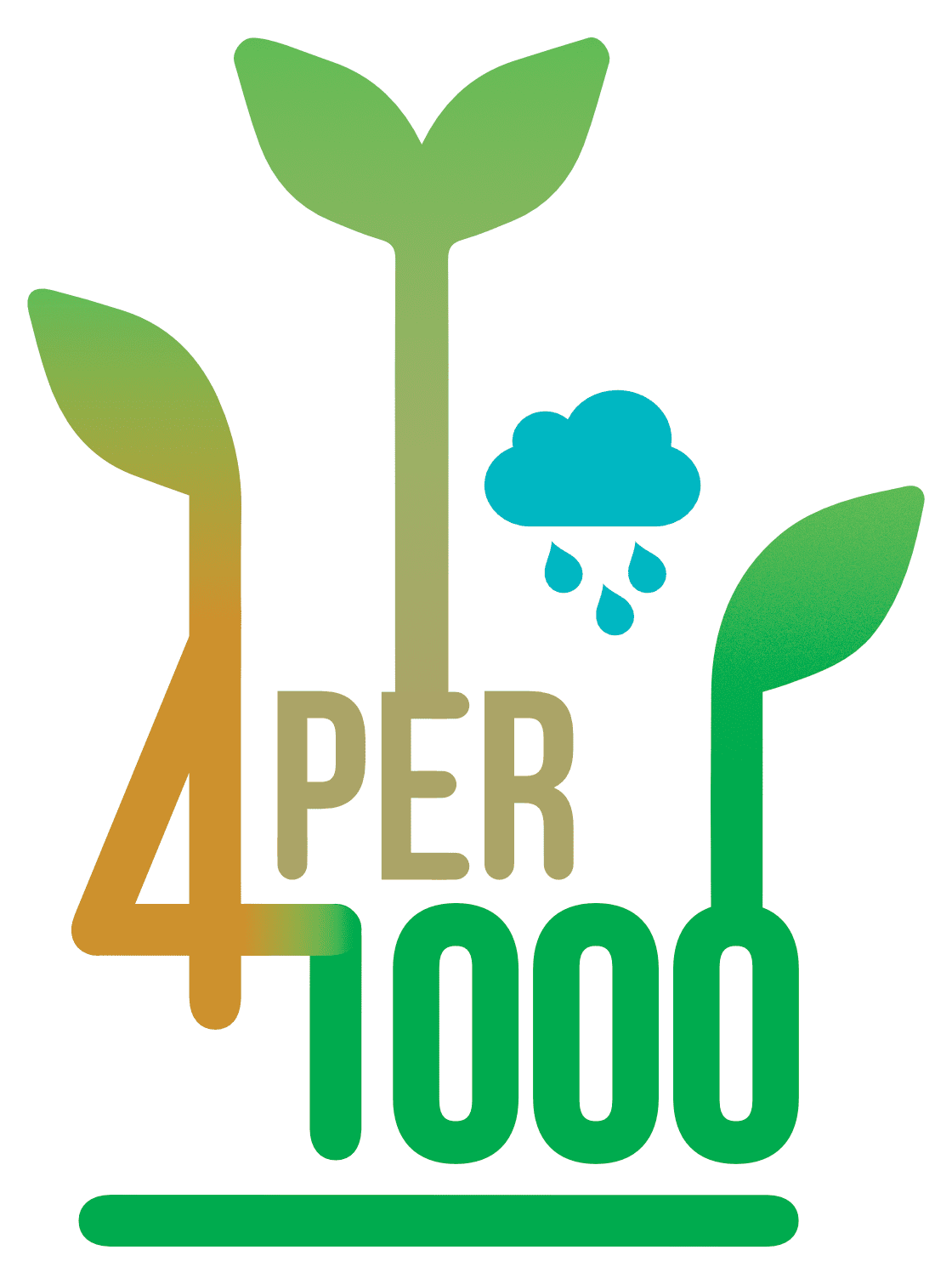The resources of the Initiative
In this section, find the resources (various documents, reports, videos, etc.) published by the “4 per 1000” Initiative and its Partners.
Sort By
- Title
“Low-carbon agriculture in South America to mitigate global climate change and advance food security” – 2017 – João Carlos de Moraes Sá, Rattan Lal, Carlos Clemente Cerri & al
João Carlos de Moraes Sá, Rattan Lal, Carlos Clemente Cerri, Klaus Lorenz, Mariangela Hungria, Paulo Cesar de Faccio Carvalho.
The worldwide historical carbon (C) losses due to Land Use and Land-Use Change between 1870 and 2014 are estimated at 148 Pg C (1 Pg = 1 billion ton).
“Managing India’s small landholder farms for food security and achieving the “4 per Thousand” target – 2018 – A.J.Nath, R.Lal, G.W.Sileshi, A.K.Das
Arun Jyoti Nath, Rattan Lal, Gudeta Weldesemayat Sileshi, Ashesh Kumar Das.
The “4 per Thousand” initiative was launched at the 21st Conference of Parties (COP21) in December 2015 to address global climate change through the aspirational goal of increasing soil organic carbon (SOC) stock of the world to 40-cm depth by an average annual rate of 4%.
“Soil Management for Sustainable Food Production and Environmental Protection” – 2018 – Mark Measures/W. CHURCHILL MEMORIAL TRUST
WINSTON CHURCHILL MEMORIAL TRUST - Copyright © January 2018 by Mark Measures
“Matching policy and science: Rationale for the ‘4 per 1000 – soils for food security and climate’ initiative” – 2019 – JF.Soussana, S.Lutfalla, F.Ehrhardt, T.Rosenstock, C.Lamanna, P.Havlík, M.Richards, E.Wollenberg, JL.Chotte, E.Torquebiau, P.Ciais, P.Smith & R.Lal
At the 21st session of the United Nations Framework Convention on Climate Change (UNFCCC, COP21), a voluntary action plan, the ‘4 per 1000 Initiative: Soils for Food Security and Climate’ was proposed under the Agenda for Action.
“Meta-analysis on carbon sequestration through Conservation Agriculture in Africa” – 2019 – Emilio J. Gonzalez-Sanchez & al
Emilio J. Gonzalez-Sanchez, Oscar Veroz-Gonzalez, Gordon Conway, Manuel Moreno-Garcia, Amir Kassam, Saidi Mkomwa, Rafaela Ordoñez-Fernandez, Paula Triviño-Tarradas, Rosa Carbonell-Bojollo.
Africa is the smallest contributor to global greenhouse gas emissions among the continents, but the most vulnerable to the impacts of climate change.
“Methods for the quantification of GHG emissions at the landscape level for developing countries in smallholder contexts” – 2013 – Eleanor Milne & al
Eleanor Milne & al.
“Microbial and plant-derived compounds both contribute to persistent soil organic carbon in temperate soils” – 2018 – P.Barré, K.Quénéa, A.Vidal & al
Pierre Barré, Katell Quénéa, Alix Vidal, Lauric Cécillon, Bent T. Christensen, Thomas Kätterer, Andy Macdonald, Léo Petit, Alain F. Plante, Folkert van Oort & Claire Chenu . Our study tests the emerging paradigm that biochemical recalcitrance does not affect substantially long-term (50 years) SOC persistence.
Vidéo : presentation of the “4 per 1000” Initiative – 2015 – French Ministry of Agriculture
Source French Ministry of Agriculture
Winter 2015-2016
“Mitigation potential of soil carbon management overestimated by neglecting N2O emissions” – 2018 – E.Lugato, A.Leip & A.Jones
Emanuele Lugato, Adrian Leip, Arwyn Jones
“Monitoring global carbon emissions in 2021” – 2022 – Liu, Z., Deng, Z., Davis, S.J. & al.
Zhu Liu, Zhu Deng, Steven J. Davis, Clement Giron & Philippe Ciais in Nature Reviews Earth & Environment ...
“A global agenda for collective action on soil carbon” – 2019 – Nature Sustainability/ S.Vermeulen, D.Bossio, J.Lehmann, P.Luu & al
Policymakers and investors have perceived securing soil organic carbon as too difficult, with uncertain returns. But new technical, policy and financial opportunities offer hope for rapid progress.
“Nature’s Make or Break Potential for Climate Change” – 2017 – The Nature conservancy
Nature "The Nature Conservancy - October 15, 2017
